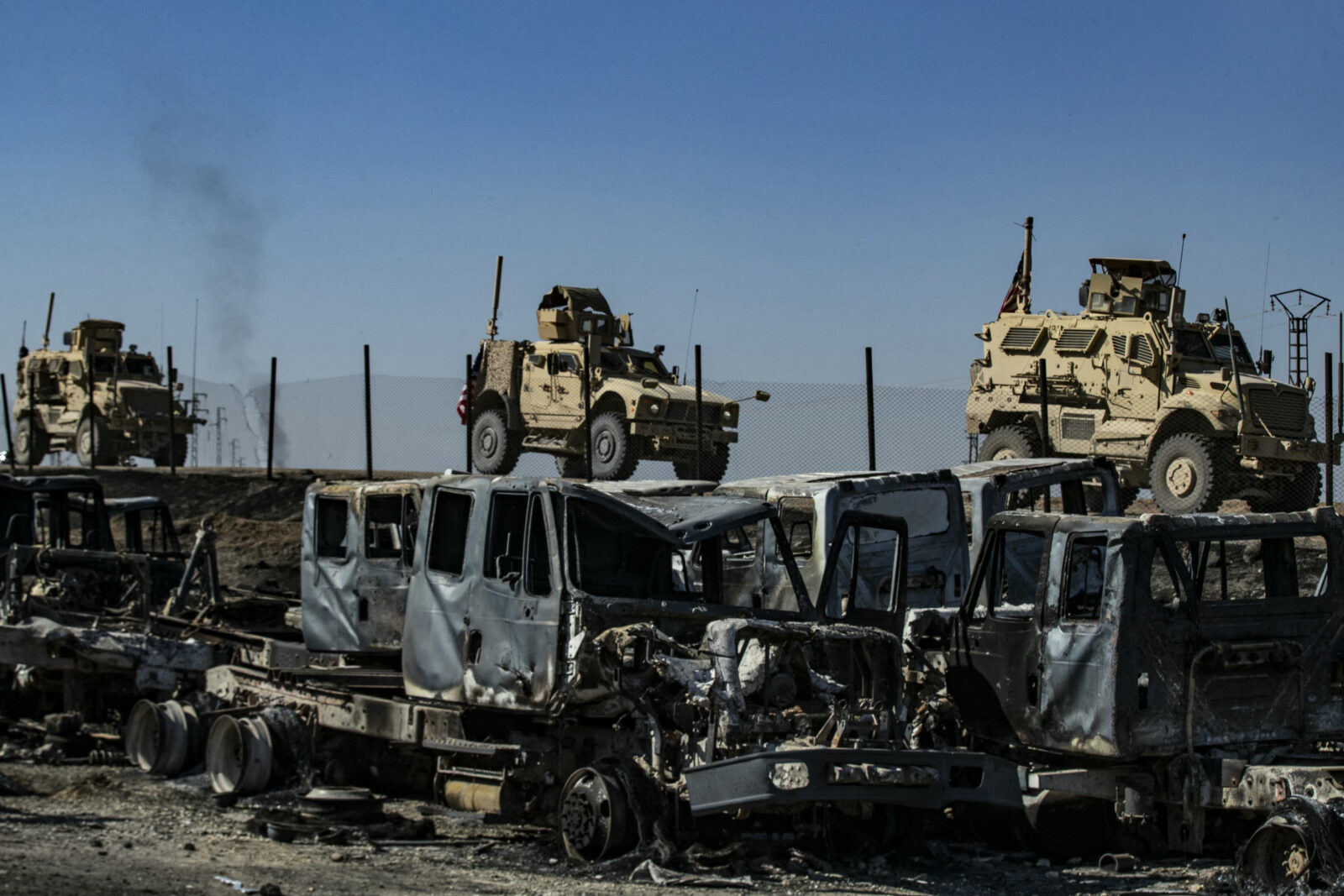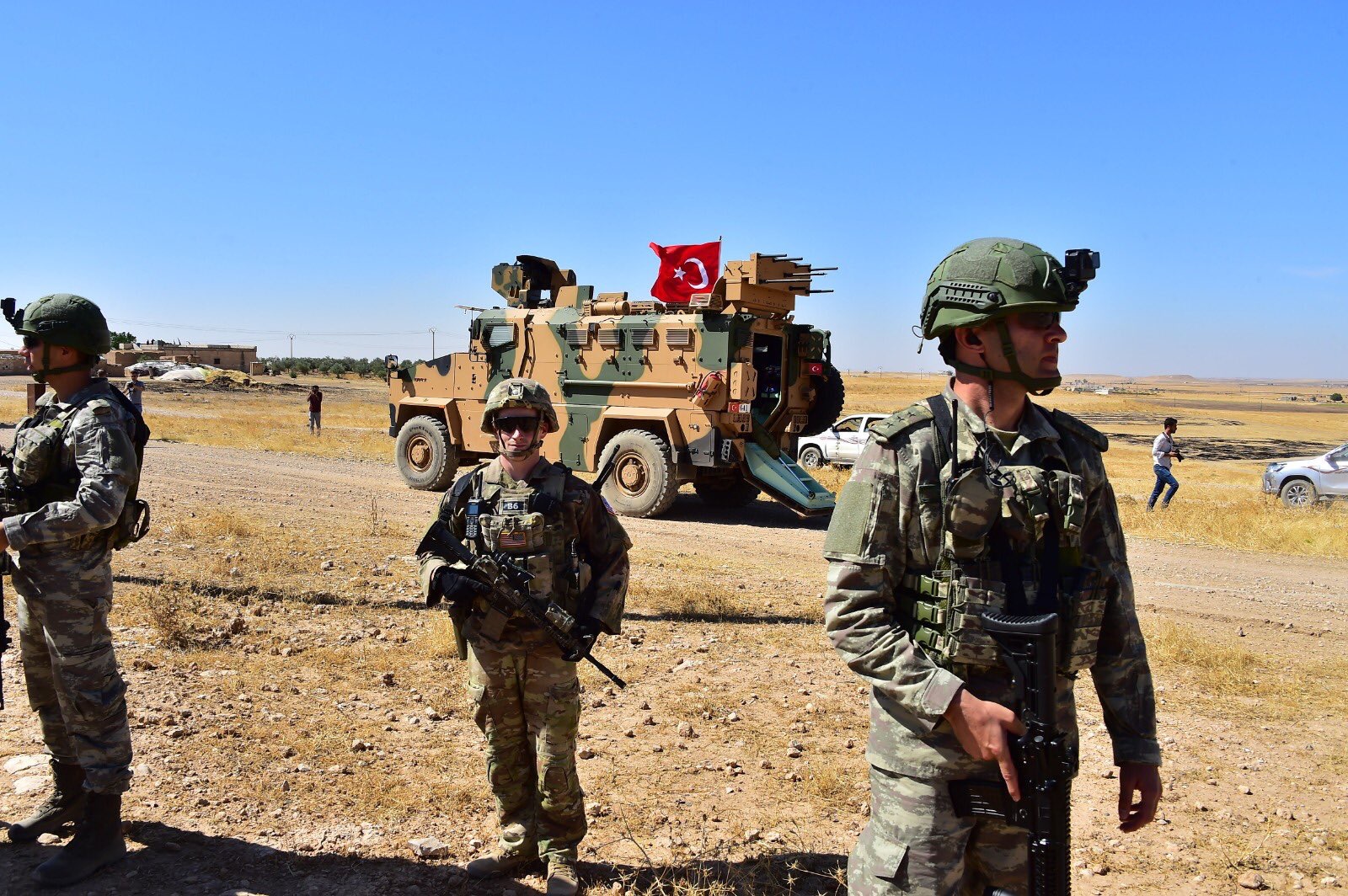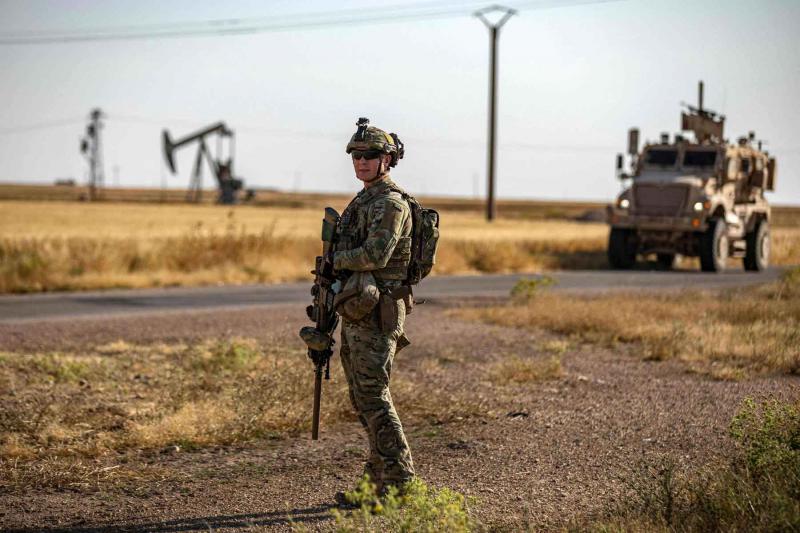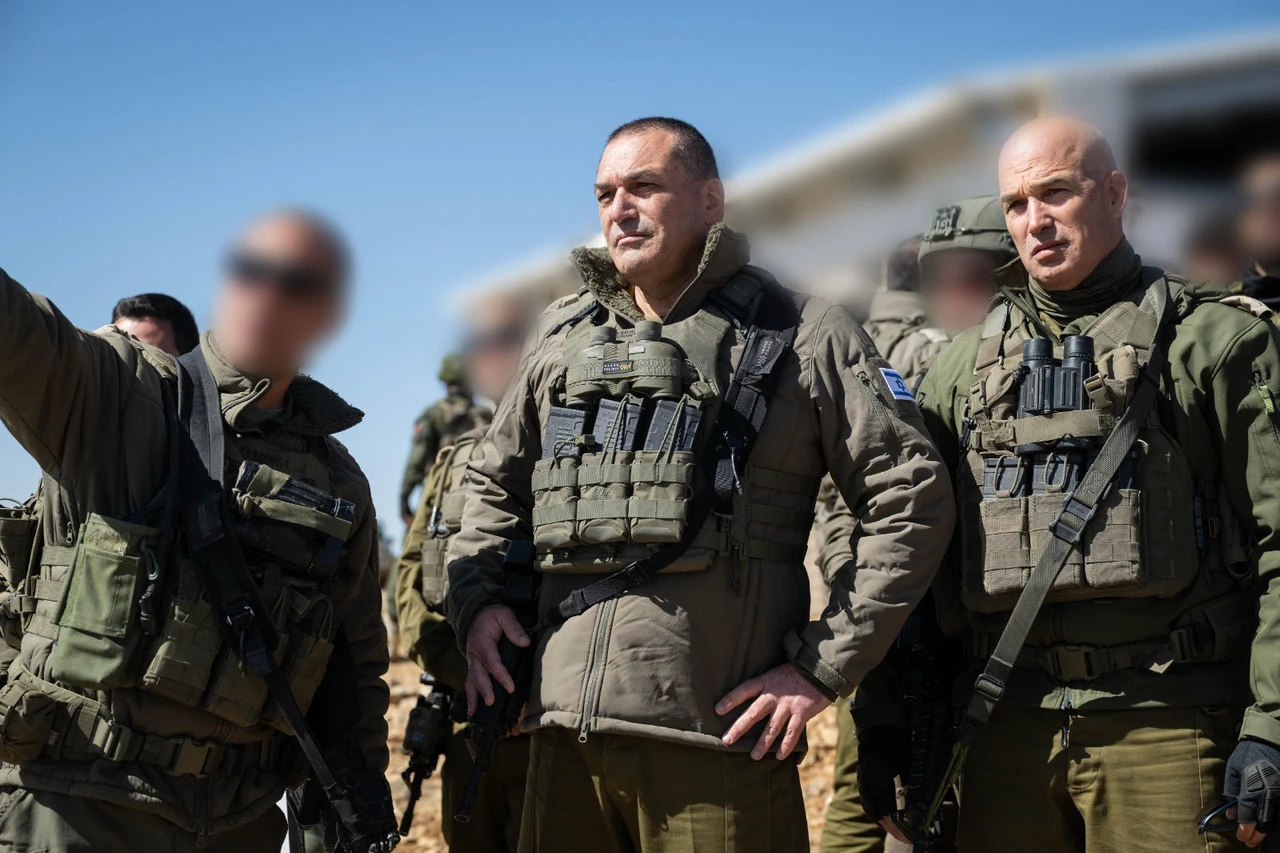Former US Ambassador to Syria calls for American withdrawal from region
 A US soldier holds a dog as forces patrol in Syria's northeastern city Qamishli, in the al-Hasakah province, Syria on Jan. 9, 2025. (AFP Photo)
A US soldier holds a dog as forces patrol in Syria's northeastern city Qamishli, in the al-Hasakah province, Syria on Jan. 9, 2025. (AFP Photo)
Former U.S. Ambassador to Syria Robert S. Ford has suggested that the United States could best assist Syria by withdrawing its troops from the region and collaborating with the country’s newly established government in combating Daesh.
In an article published in Foreign Affairs titled “America Can Best Help Syria By Getting Out,” Ford evaluated Washington’s role in the region and proposed a shift in policy that would prioritize cooperation with Damascus over continued military engagement.
Advocating for withdrawal
Ford argued that the fall of Bashar al-Assad’s regime and the emergence of a new leadership in Syria presents an opportunity for Washington to reevaluate its approach.
Instead of relying on the SDF, the Syrian offshoot of the terrorist organization PKK in Iraq, he suggested that the U.S. should work with the new Syrian government, which may prove to be a more effective and influential partner in eliminating Daesh.
As a long-time NATO and bilateral ally of the United States, Türkiye has repeatedly and insistently demanded that the United States withdraw its support and protection to the YPG, the Syrian extension of the terrorist organization PKK.
In the region, the terrorist organization is gaining acceptance by the international public opinion, especially by claiming that they are fighting against the terrorist organization Daesh, but all they do is provide prison services, which they are not good at considering the human rights reports claiming of torture and more in those prisons.
The new government under Ahmed al-Sharaa has already stated that it can provide control of these places in the changing dynamics in Syria, and even Türkiye has stated that it will form a coalition with countries Iraq, Jordan, and Syria to prevent the terrorist organization from operating here once again.
“The only path for Syria to establish a true democracy is through the rule of law and the protection of political and personal freedoms,” Ford wrote. “However, this should not require American intervention or the presence of U.S. troops on the ground.”

Challenges with the SDF
Ford expressed skepticism over continued U.S. reliance on the SDF, citing its failure to fully dismantle Daesh despite years of funding from Washington with US taxpayers.
He noted that the SDF’s actions, including extrajudicial detentions and forced recruitment, have alienated local Arab communities and, in some cases, driven individuals to support Daesh.
Additionally, Ford pointed to the SDF’s ongoing conflict with Türkiye, stating that the group’s hostilities with Ankara have diverted resources and focus away from counterterrorism efforts. “To maintain its alliance with the SDF, the U.S. would need to continue backing the group in its struggles against Türkiye,” he noted. “This dynamic distracts from the primary goal of eliminating Daesh.”

A new strategy for Syria
Ford proposed Washington should pivot toward cooperating with the interim Syrian government led by Ahmed al-Sharaa, which replaced the Assad regime in December.
He emphasized that while this government is still untested, its success in securing regional support—including from Türkiye—could make it a more viable partner in stabilizing Syria.
“The U.S. should open direct communication with Damascus to discuss collaborative efforts against Daesh, including intelligence-sharing and military coordination,” Ford suggested.
“Washington must also consider easing sanctions on Syria to facilitate economic recovery and ensure long-term stability.”

Implications for US policy in Syria
Ford urged the U.S. administration to clearly communicate its intention to withdraw troops from Syria within two years.
He stressed that all armed groups under the SDF umbrella should be integrated into the new Syrian military structure as part of a broader reconciliation process.
“The U.S. must be willing to disappoint the SDF and encourage it to transition into Syria’s national framework,” he stated. “By gradually stepping back, Washington can avoid prolonging conflicts and instead support Syria’s stabilization from a distance.”
While Ford acknowledged skepticism in Washington regarding engagement with Syria’s new leadership, he emphasized that working with Damascus may be the only sustainable path forward in defeating Daesh and ensuring regional stability.
If US President Donald Trump, who claims that he will solve the conflicts in the world, continues to support the YPG, which is the very root of the problem in the region after years of peace in Syria, Syria will not be able to maintain its territorial integrity, including after years of civil war, and new conflicts will be paved the way for new conflicts.
SDF-led YPG is currently occupying resources of the nation along with Syrian soil.


